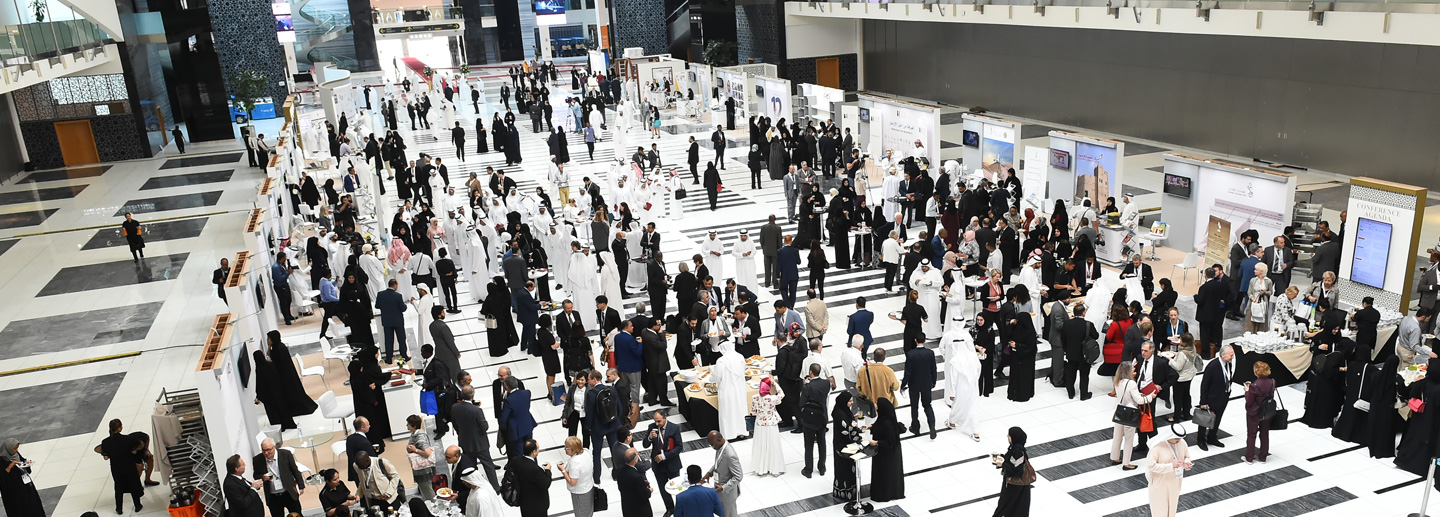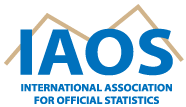
15th IAOS Conference
“The Spirit of Official Statistics: Partnership and Continuos Innovation”
6-8 December 2016. Abu Dhabi
Day 1 - Tuesday 6 December 2016
Parallel Session 1.A – Implementing the Fundamental Principles: Supporting Statisticians in Developing Countries
Chair: Stephen Penneck
- “Implementing the Fundamental Principles in a Transforming Statistical System”, Francesca Peruci (UNSD). Presentation
- “A Success Story: Implementation of Quality Management in the Statistical System of Mongolia”, Sybille von Oppeln-Bronikowski (DESTATIS, Germany). Paper ; Presentation
- “Political Power and the Argentine System: The Case of INDEC”, Jorge Todesca (INDEC, Argentina)
- “Spporting Implementation of Fundamental Principles in the African Region”, Ben Kiregyera (UNECA).
- “PARIS21’s Role in FPOS Implementation: Supporting Developing Countries Then, Now, and in Coming years”, Millicent Gay Tejada (PARIS21). Presentation
Parallel Session 1.B – Finding People and Following Them
Chair: Peter Hackl TBC (Former Statistics Austria)
- “Sudan Experience in Conducting Population Censuses”, Hagir Osman El Jack and Awatif El Awad Musa (Al Neealin University, Sudan). Paper ; Presentation
- “Comparison of Geographic Distribution and Correlates of Childhood and Adult Mortality in South Africa using Civil Registration System and Census Datasets 2011”, Samuel Manda (South African Medical Research Council). Presentation
- “Harmonised Census Geography in IPUMS International for Spatio-Temporal Research”, Lara Cleveland (University of Minnesota, United States). Paper; Presentation
- “Early Divorce Predictions in Abu Dhabi”, Mohammed Alkhyeli and Razan Ismail (SCAD, UAE). Paper ; Presentation
Parallel Session 1.C – From Data Dissemination to Services for Data Consumption: The Experience from the European Statistical System
Chair: Mariana Kotzeva (EuroStat)
- “Serving Official Statistics Visually”, Michael Neutze (DESTATIS, Germany). Paper ; Presentation
- “Innovating Statistical Communication in Europe: The DIGICOM Project”, Emanuele Baldacci (EuroStat) and Stephan Moens (Stats Belgium). Paper ; Presentation
- “New Website and Involvement of Users”, Laura Dewis (ONS, United Kingdom). Presentation
- “Dealing with Open Data at ISTAT: First Steps Towards a Perfect Data Portal”, Stefano De Francisci (ISTAT, Italy) and Giovanni Barbieri (ISTAT, Italy). Paper ; Presentation
Parallel Session 2.A – Statistical Innovation in Official Statistics in the GCC Region
Chair: Sabir Al Harbi (GCC-Stat)
- “The UAE’s Competitiveness Story in Numbers: Data Driven Policy Making Towards Prosperity”, Abdulla Lootah (FCSA, UAE). Presentation
- “Transformation Programme of the Statistics and Information Sector in Saudi Arabia”, Fahad Al Tekhafi (General Authority for Statistics, KSA). Presentation
- “Integrating GIS and Remote Sensing Techniques in Kingdom of Bahrain Vegetarian Survey”, Khalid A. Hameed Al Hammadi (Central Informatics Organisation, Bahrain). Paper ; Presentation
- “New ways of Collecting Price Data: Opportunities and Challenges”, Khalid Al Mudhaffar (NCSI, Oman). Presentation
Parallel Session 2.B – Advancing the Data Revolution through Record Linkage and Data Integration
Chair: Juraj Riecan (UN ESCWA)
Discussant: Marwan Khawaja (UN ESCWA)
- “Lessons Learned from Record Linkage Applications to Advance Mortality Statistics of Indigenoues Populations in Australia; Unpacking Sources of Error and Magnitudes of Bias”, Ching Choi (University of New South Wales, Australia). Presentation
- “Strengthening Vital Statistics in Low and Middle Income Countries through Record Linkage: Past Lessons, Current Challenges, and Future Opportunities”, Romesh Silva (UN ESCWA).
- “Reflection on Record Linkage as a Tool to Advance Measurement, Interoperability, and Systems Development”; Fritz Scheuren (NORC, United States). Presentation
Parallel Session 2.C – Showcasing the Work of CAPMAS
- “Partnerships between Arab Statistical Offices to Build a National Statistical System”, Haidy Mahmoud (CAPMAS). Paper ; Presentation
- “Egypt Household International Migration Survey (Egypt-HIMS). One of the Aspects of International and Regional Partnership”, Mostafa Younes Yousef (CAPMAS). Paper ; Presentation
- “Factors Affecting Decent Work in Egypt”, Reem Ismail Elsybaey (CAPMAS). Paper ; Presentation
- “New Statistical Method to Improve the Quality of Official Statistics in CAPMAS. Opportunities and Challenges”, Said Kamal Mohammed (CAPMAS). Paper ; Presentation
IAOS General Assembly Meeting
- Olaw Awad (IAOS President 2015-2017). Presentation
Day 2 - Wednesday 7 December 2016
Parallel Session 3.A – Partnerships and Innovative Approaches for Statistics for the 2030 Agenda for Sustainable Development
Chair: Francesca Perucci (UNSD)
- “National Monitoring System as Prototype for SDG Database”, Ola Awad (PCBS, Palestine). Presentation
- “The Value of Data in the Implementation of Agenda 2030”, Georgio Alleva (ISTAT, Italy). Paper ; Presentation
- “Integrating New Data Sources and Tools to Monitor SDGs”, Julio Santaella Castell (INEGI, Mexico). Paper ; Presentation
- “The Global Approach to Responding to the New Data Requirements related to the Swiss Case”, Georges-Simon Ulrich (Swiss Federal Statistical Office). Presentation
Parallel Session 3.B – Building and Mordernising National Statistical Systems
Chair: Heli Jesjanen-Sundström (former Startistics Findland)
- “Smart Statistics as a Service”, Hassan Machmouchi (Dubai Statistics Center). Paper ; Presentation
- “Strategy for the Development and Implementation of a Statistical System”, Hasan Al Jafri (SCAD, UAE). Paper ; Presentation
- “Introducing Modernisation in the Statistical System in the Kurdistan Region”, Gohar Saeid (KRSO, Iraq). Paper ; Presentation
- “Partnership in Action for Results Measuring and Monitoring Sharjah Emirate’s-specific Sustainable Development Goals”, Naama Nasir Alaboodi (DSCD, UAE). Paper ; Presentation
Parallel Session 3.C – Improving Statistics and Purchasing Power Parities in the Gulf Region to Inform Policy Making
Chair: Grant Cameron (World Bank Group)
- “Statistical Capacity in the Gulf Countries: What Could be Done?”, Mustafa Dinc (World Bank Group). Presentation
- “Developing a Strategy for the Continuous Production of Purchasing Power Parities and Improvement of Price Statistics in the Arab Region”, Majed Skaini (UN ESCWA). Paper ; Presentation
- “Uses of Purchasing Power Parities and Prices Indices to Better Inform Policy-Making and Poverty Measurement”, Nada Hamadeh (World Bank Group). Paper ; Presentation
Parallel Session 3.D – Statistical Literacy in the Rapidly Expanding Information Society
Chair: Sibylle von Oppeln-Bronikowski (DESTATIS, Germany)
Discussant: Reija Helenius (Statistics Finland). Presentation
- “Actions for Improving Statistical Literacy in Slovenia”, Genovefa Ruzic (Statistical Office, Slovenia). Paper ; Presentation
- “CBS in the Classroom: How Statistics Netherlands Approaches Young Students in Learning Statistics”, Lieke Stroucken (CBS, Netherlands). Paper ; Presentation
- “How much is 20%? Increasing Statistical Literacy Among Students”, Kerstin Haensel (DESTATIS, Germany). Presentation
- “Promoting Statistical Literacy in Abu Dhabi”, Raba’a Baniyas (SCAD, UAE). Paper ; Presentation
Parallel Session 4.A – Rising to the Challenges with Ingenuity: Modernisation Processes in National Statistical Offices
Chair: Georges-Simon Ulrich (FSO, Switzerland)
- “Modernisation in the Central Statistical Office, Ireland: Evolution, not Revolution”, Andrew O’ Sullivan (CSO, Ireland). Presentation
- “Transforming the Australian Bureau of Statistics”, Jenn Telford (ABS, Australia). Paper ; Presentation
- “The Use of Enterprise Architecture as a Framework to Fulfil OECD Quality Principles”, Julio Santaella (INEGI, Mexico). Presentation
- “Modernising Official Statistics. The International Dimension”, Lidia Bratanova (UNECE). Presentation
Parallel Session 4.B – Innovation in Data Access and Dissemination
Chair: Mario Palma (INEGI, Mexico)
Discussant: Pedro Coelho (NOVA University, Portugal)
- “From Mobile to Web to Print: Modernising the CompleteDissemination Chain Switzerland”, Thomas Schulz (FSO, Switzerland). Paper ; Presentation
- “Building a Modern Statistical website: SCAD’s Experience”, Greg Pole (SCAD, UAE). Paper ; Presentation
- “Building a Dedicated Team for Innovation in Data Visualisation – SCAD’s Experience”, Badria A. Obaid and Gregory Pole (SCAD, UAE). Paper ; Presentation
Parallel Session 4.C – Measurement of Social Development
Chair: Satish Chandra (Tawam Hospital, UAE)
- “Assessment of Sudan Household Health Survey Data, 2010”, Awatif Musa (Al Neelain University, Sudan). Paper ; Presentation
- “Measuring the Dispersion of Incomes (Tanzania)”, Gabriel K. Simbila (Eastern Africa Statistical Training Centre). Presentation
- “Gender Wage Gap in Morocco: Is there any Evidence for Discrimination?”, Mustapha Ziroili (HCP, Morocco). Paper ; Presentation
Parallel Session 4.D – GCC Intitiatives. The Importance of Partnerships & the Environment
Chair: Abukaker Al Gifri (SCAD, UAE).
- “Regional Statistical Cooperation: GCC-Stat Case Study”, Duaa Sultan (GCC-Stat). Paper ; Presentation
- “Water Statistics in the GCC Countries: Recent Experiences”, Ibtihaj Al-Siyabi (GCC-Stat). Paper ; Presentation
- “Building Statistical Partnerships with the Business Sector in Abu Dhabi”, Nouf Al Zaabi (SCAD, UAE). Paper ; Presentation
- “Importance of Environmental Statistics to Support the Decision Maker”, Yasser Othman (Environment Agency, Abu Dhabi). Presentation
Parallel Session 5.A – Population Statistics from Big Data: Will it Meet User Needs?
Chair: Nancy McBeth (GCC Stat)
Discussant: Yousef Al Hammadi (GSEC, UAE).
- “Estimating Population Mobility Using Big DataSources: Benefits and Challenges”, Jane Naylor (ONS, United Kingdom). Paper ; Presentation
- “New Opportunities for Statistics on Population and Mobility from the Use of Mobile Phone Data”, Fernando Reis (Eurostat). Paper ; Presentation
- “Big Data Strategy of Statistics Korea”, Hae Ryun Kim (Statistics Korea). Presentation
Parallel Session 5.B – Strengthening Statistics for a Better National Agenda
Chair: Massod Badri (ADEC, UAE)
- “The Fundamental Principles of Official Statistics in SCAD”, Mohammed Al Rifae (SCAD, UAE). Paper ; Presentation
- “Competitiveness and Statistics at the Heart of a National Vision”, Malik Al Madani (FCSA, UAE). Presentation
- “Energy Data to Develop the Energy Sector”, Abdallah Azzam (PCBS, Palestine). Paper ; Presentation
- “Interlinked Statistics Aligned with the Government’s Long-Term Development Plans for the Emirate of Abu Dhabi”, Shamma Al Remeithi (SCAD, UAE). Paper ; Presentation
Parallel Session 5.C – Highlighting the Value of Work through Statistics
Chair: Ada Van Krimpen (ISI)
- “Decent Work in Morocco: What Reality?, Jammal Guennouni (HCP, Morocco). Paper ; Presentation
- “Integration of Labour Caps into the Household Income and Expenditure Survey in Abu Dhabi”, Osama Al Zoubi (SCAD, UAE). Paper ; Presentation
- “Labour Statistics for Evidence Based Policies”, Mona Khalaf Al Daas (Central Statistical Bureau, Kuwait). Paper ; Presentation
Day 3 - Thursday 8 December 2016
Keynote Address
- “Public-Private Partnerships for Big Data”, Dr. Johannes Jütting (Head, Partnership in Statistics for Development in the 21st Century PARIS21). Presentation
Parallel Session 6.A – Implementing the Fundamental Principles: Success Stories and Good and Bad Experiences
Chair: Paul Cheung (National University, Singapore)
- “Defending the Integrity of Official Statistics and the Independence of Statisticians”, Jean-Louis Bodin (Independent Consultant, France). Paper
- “Problems of Implementing the Fundamental Principles of Official Statistics in Ukraine”, Oleksandr Osaulenko (NASOA, Ukraine). Paper ; Presentation
- “Towards a Global System of Monitoring the Implementation of UN Fundamental Principles in National Official Statistics”, Andreas V. Georgiou (Independent Consultant, Greece). Presentation
- “The Role of NSS in Defending Integrity; the Case of the Royal Statistical Society”, Denise Lievesley (RSS, United Kingdom). Presentation
Parallel Session 6.B – Statistics for Improving Trust, Peace and Security
Chair: Mario Palma (INEGI, Mexico)
Discussant: Rudolphe Petras (PARIS21)
- “Measuring Corruption, Crime and Victimisation in the Context of the SDGs”, Enrico Bisogno (UNODC).
- “Wellbeing, Trust in Public Institutions and the SDG 16”, Marco Mira (OECD).
- “Measuring SDG Goal 16: Are we Ready? The Mexican Context”, Adrian Franco (INEGI, Mexico). Paper ; Presentation
Parallel Session 6.C – Innovative Methods and Uses of Technology in Official Statistics
Chair: Saif Al Shaali (UAE University)
Discussant: Simon Field (Gartner, UAE)
- “ESCAD: Data Collection and Dashboard in Abu Dhabi”, Huda Al Bastaki (SCAD, UAE). Paper ; Presentation
- “Issues in Optical Character Recognition for Statistical Data Capture”, Arij Dekker (Independent Consultant, Netherlands). Paper ; Presentation
- “Balancing Input-Output tables with Bayesian Slave-raiding Ants”, Rolando Gonzales Martinez (Bayesian Institute for Research & Development). Presentation
- “Variance Reduction using a non-informative Sampling Design”, Thomas Zimmermann (DESTATIS). Presentation
Parallel Session 6.D – Administrative and Alternative Data Sources
Chair: Ibrahim Abdalla TBC (UAE University)
- “Statistical Data Quality in SCAD: The Model and the Implementation”, Maamoon Kassab (SCAD, UAE). Paper ; Presentation
- “Improving Offficial Statistics by Maximising the use of Administrative Data in the Department of Statistics in Morocco: Current Situation and Prospects”, Bouchikkar Bouazza (HCP, Morocco). Paper ; Presentation
- “Big Data and Macroeconomic Nowcasting: From Data Access to Modelling”, Dario Buono (Eurostat). Paper ; Presentation
- “Understanding Australian Migrant Outcomes – Making Better Use of Administrative Data”, Jenny Teldford (Australian Burau of Statistics). Paper ; Presentation
- “Big Data and Official Statistics in Morocco: Opportunities and Challenges”, Lina Tazi (INAC, Morocco). Paper
